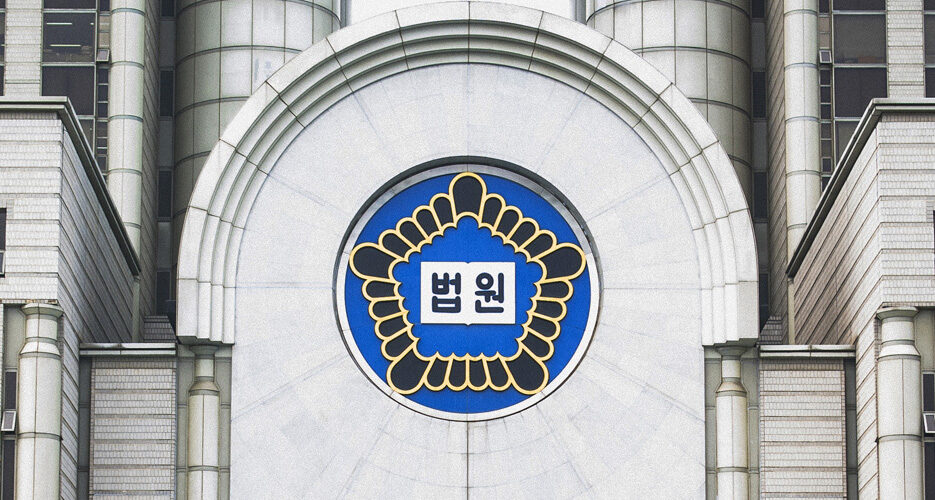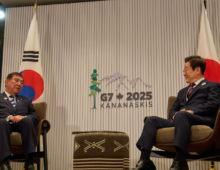Forty-four Democratic Party (DP) lawmakers, including floor leader Park Hong-keun, sponsored a bill in the National Assembly that proposed revising the Court Organization’s Act. The proposed revision calls for a committee recommending Supreme Court chief justice candidates. Political observers widely interpret the move as an attempt to restrict the president’s right to appoint individuals for the position. Current Supreme Court Chief Justice Kim Myeong-su’s term ends in about six months.
Article 104, Section 1 of the ROK Constitution states, “The Chief Justice of the Supreme Court shall be appointed by the President with the consent of the National Assembly.” Under the proposed revision, the National Assembly will form a new committee recommending candidates from which the president must choose an individual to appoint as Supreme Court chief justice. The committee would comprise 11 members, including the Minister of National Court Administration, the head of the Korean Bar Association and five experts who do not hold a profession in law.
Why It Matters
South Korean Supreme Court justices do not serve lifetime appointments. Article 105 of the ROK Consitution states that the chief justice and other justices of the Supreme Court have a term limit that lasts six years. While the chief justice may not be reappointed at the end of their tenure, other justices can be reappointed. The Supreme Court chief justice has another role guaranteed by Article 111, Section 3 of the ROK Constitution — they can nominate three of the nine Constitutional Court justices. The ROK Supreme Court has jurisdiction over all cases except those cases falling under the jurisdiction of the ROK Constitutional Court, which reviews constitutional matters such as determining the constitutionality of laws, impeachment and dissolving political parties.
DP lawmaker Choi Ki-sang, one of the proposed bill’s sponsors, explained that the justice minister would not be part of the recommending committee. Choi said, “If the Ministry of Justice exercises the authority to verify and recommend nominees for Supreme Court chief justice, checks and balances through decentralization of power would become difficult.” The DP deeply dislikes the current justice minister, Han Dong-hoon. DP lawmakers have recently called for his resignation over disputes about prosecutorial authority. Polls also show that Han is the most popular among possible conservative presidential candidates in 2027.
The ruling People Power Party (PPP) and President Yoon Suk-yeol will most likely disagree with the proposal, possibly leading to bitter parliamentary disputes.
Forty-four Democratic Party (DP) lawmakers, including floor leader Park Hong-keun, sponsored a bill in the National Assembly that proposed revising the Court Organization’s Act. The proposed revision calls for a committee recommending Supreme Court chief justice candidates. Political observers widely interpret the move as an attempt to restrict the president’s right to appoint individuals for the position. Current Supreme Court Chief Justice Kim Myeong-su’s term ends in about six months.
Article 104, Section 1 of the ROK Constitution states, “The Chief Justice of the Supreme Court shall be appointed by the President with the consent of the National Assembly.” Under the proposed revision, the National Assembly will form a new committee recommending candidates from which the president must choose an individual to appoint as Supreme Court chief justice. The committee would comprise 11 members, including the Minister of National Court Administration, the head of the Korean Bar Association and five experts who do not hold a profession in law.
Get your
KoreaPro
subscription today!
Unlock article access by becoming a KOREA PRO member today!
Unlock your access
to all our features.
Standard Annual plan includes:
-
Receive full archive access, full suite of newsletter products
-
Month in Review via email and the KOREA PRO website
-
Exclusive invites and priority access to member events
-
One year of access to NK News and NK News podcast
There are three plans available:
Lite, Standard and
Premium.
Explore which would be
the best one for you.
Explore membership options












